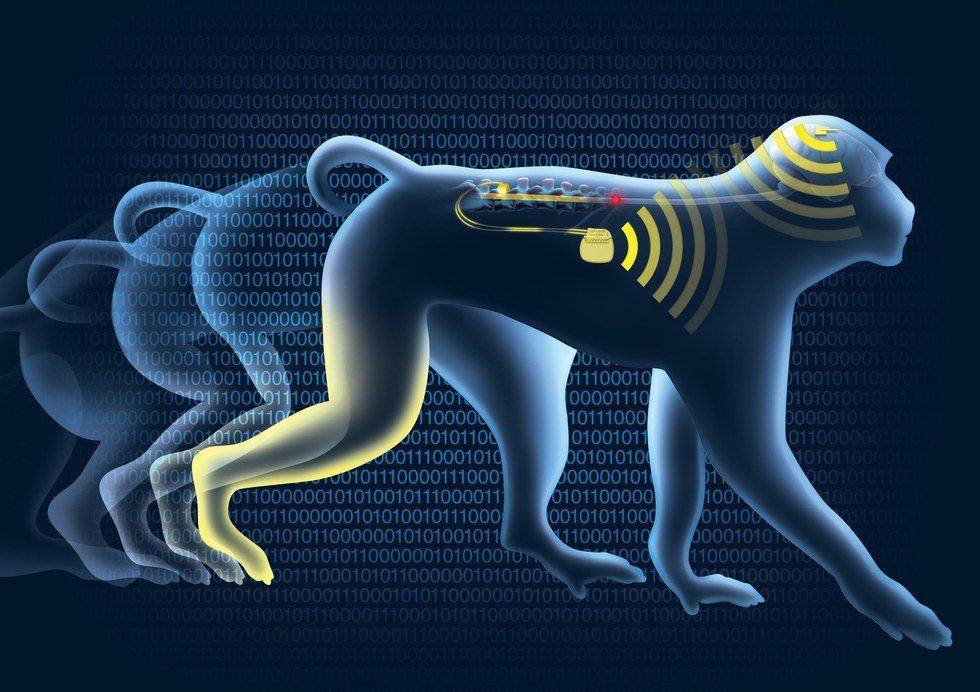Soon, paralyzed individuals might be able to receive implants to allow them to have full control over their limbs again.
Researchers at the Swiss Federal Institute of Technology implanted monkeys with chips in their brain to send wireless signals to paralyzed areas of their bodies. The monkeys were able to regain some control of their limbs in a matter of minutes.
The technology is not perfect yet, but it is getting there. Movement for just about normal walking can be restored, but the monkeys are not able to move right or left yet.
There is similar technology that helps people control robotic arms, but no chips have been tried in humans yet. On top of this, some scientists have transplanted nasal cavity cells into damaged spinal cords to partially treat paralysis. While chips are probably the future to combat paralysis, there are still some options today that also show some promise.
Trials of a robotic exoskeleton have been done on a handful of people who have been paralyzed from 3-13 years. Patients wear a skull cap that sends signals to the wearable robotic exoskeleton. Every three months during their year of training yielded improved results. Patients made improvements in their muscle control and well as their sense of touch. It was observed that these patients even had improved bowel movements.
While this technology is years away from being perfect, or even tested on a mass scale, you have to admit that the future looks bright for paralysis recovery. Soon enough, we may live in a world where victims of paralysis will be able to quickly recover from their condition. The future is here.





















